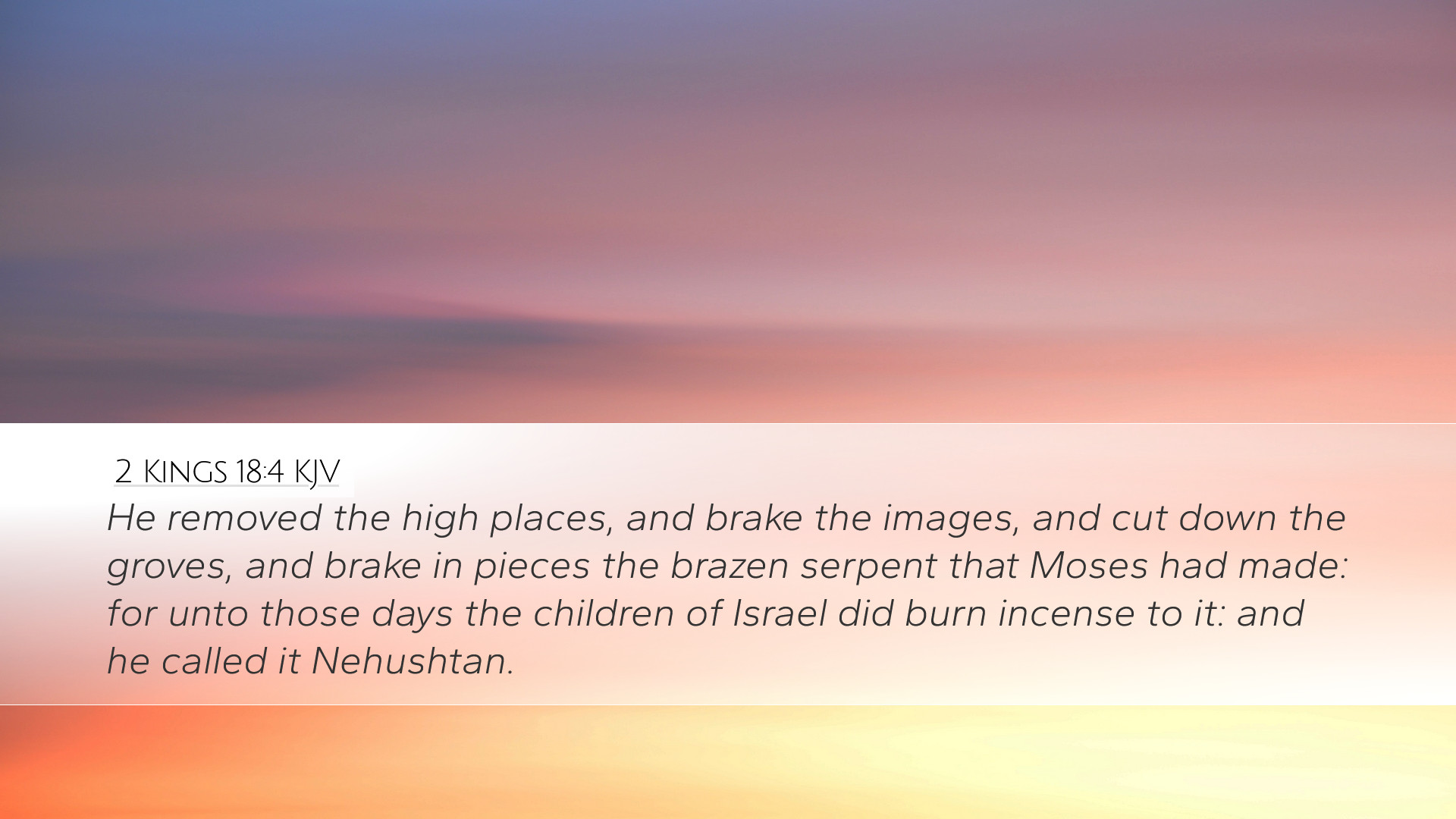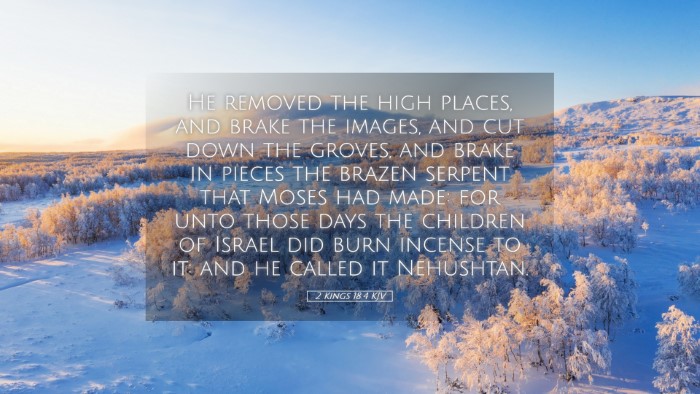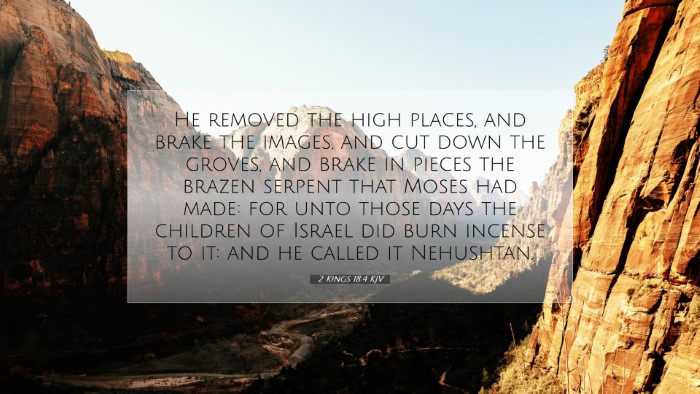Commentary on 2 Kings 18:4
Verse Text: "He removed the high places and broke the pillars and cut down the Asherah; and he broke in pieces the bronze serpent that Moses had made, for until those days the people of Israel had made offerings to it. It was called Nehushtan."
Introduction
This verse marks a significant moment in the reign of King Hezekiah of Judah, noted for his religious reforms and commitment to exclusivity in worship to Yahweh. The actions reported here reveal Hezekiah's determination to root out idolatry and restore true worship, aligning with the overarching theological themes found throughout the books of the Kings.
Theological Significance
The act of removing high places and breaking down idols indicates a profound shift towards monotheism, a critical theme in the narrative of Israel's history.
- Continuity with Mosaic Law: Hezekiah's reforms reconnect Israel with the original covenant established with Moses, showcasing a return to authentic worship practices as outlined in the Law (Deuteronomy 12:1-14).
- Destruction of Idols: The tearing down of the bronze serpent, which had become an object of idolatry (calling it Nehushtan), underscores the common human tendency to revere symbols over the divine reality they represent.
Commentary Insights
Matthew Henry
Matthew Henry focuses on Hezekiah's decisive actions against idolatry and the restoration of proper worship. He emphasizes that Hezekiah's reforms were necessary to preserve the nation from further judgment and to bring about spiritual renewal. Henry comments on the significance of the bronze serpent, acknowledging its initial purpose but warning against the dangers of idolatry that may arise from misplaced veneration.
Albert Barnes
Albert Barnes elaborates on the high places referred to in the verse, noting that these were sites commonly used for pagan worship. He draws attention to the historical context where such practices were common prior to Hezekiah’s efforts. Barnes discusses the bronze serpent's history as a divine means of healing (Numbers 21:8-9) but critiques the people's misappropriation of it as an idol, cautioning that even divinely instituted objects can be corrupted by human idolatry.
Adam Clarke
Adam Clarke provides a thorough analysis of the terms used in the verse, particularly focusing on "Asherah" and its implications for Canaanite worship practices. He emphasizes the necessity of reform stemming from a sincere devotion to the true God, supporting Hezekiah’s actions as critical for national restoration. Clarke also reflects on the cultural ramifications of Hezekiah’s reforms, claiming that a return to proper worship structures the community's moral framework profoundly and positively.
Historical Context
The historical backdrop of 2 Kings 18 is significant in assessing Hezekiah's reforms. Hezekiah ascends the throne in a time marked by apostasy and idolatry that plagued Judah, largely influenced by surrounding nations. This environment necessitated a strong leader willing to counteract cultural and religious decay through reforms that aligned with God’s commands.
Practical Applications for Today
The issues discussed in this verse encourage reflection on the modern-day Church and its practices. Just as Hezekiah sought to eliminate distractions from true worship, contemporary believers and leaders should examine the influences that may hinder authentic worship of God.
- Examining Our Practices: Are there traditions or practices that have strayed from original intent and become barriers to true worship?
- Commitment to Reform: Hezekiah’s example challenges believers to undertake personal, community, and congregational reform towards authenticity in faith.
Conclusion
2 Kings 18:4 encapsulates a pivotal moment in Judah's history. The decisive actions of Hezekiah illustrate a profound commitment not just to theological correctness, but to heart transformation within the community. For pastors, students, and theologians, the insights drawn from this passage provide a rich tapestry of historical, theological, and practical implications that continue to resonate within the life of the Church today.


